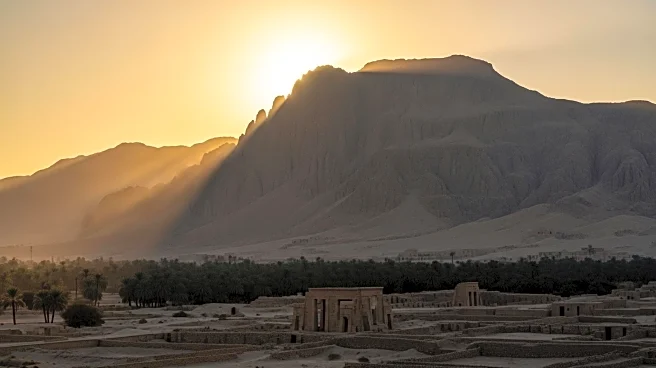What's Happening?
Egypt's plans to develop a luxury tourism project on Mount Sinai have sparked significant controversy. The site, revered by Jews, Christians, and Muslims, is being transformed into a mega-resort, including luxury hotels and shopping bazaars. The project has faced backlash from local Bedouin communities, who have been displaced without compensation, and from international stakeholders concerned about the preservation of the site's cultural and religious significance. The Greek Orthodox Church, which runs the historic St. Catherine's Monastery on the site, has been vocal in opposing the development.
Why It's Important?
The Mount Sinai project highlights the tension between economic development and cultural preservation. While the Egyptian government views the project as a means to boost tourism and the economy, critics argue it threatens the site's historical and spiritual heritage. The situation underscores the challenges faced by countries in balancing modernization with the protection of cultural landmarks. The controversy also reflects broader issues of indigenous rights and the impact of large-scale developments on local communities.
Beyond the Headlines
The project raises ethical questions about the commercialization of sacred sites and the role of government in protecting cultural heritage. The displacement of the Bedouin community and the potential loss of traditional practices highlight the social impact of such developments. The international response, particularly from Greece, indicates the global significance of Mount Sinai as a cultural and religious symbol. The outcome of this controversy could influence future policies on heritage conservation and tourism development.








